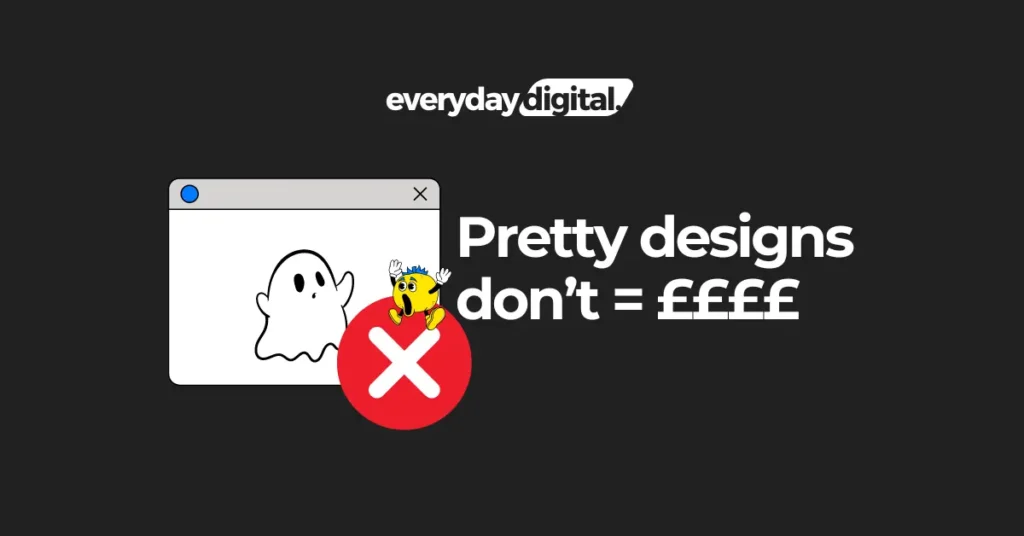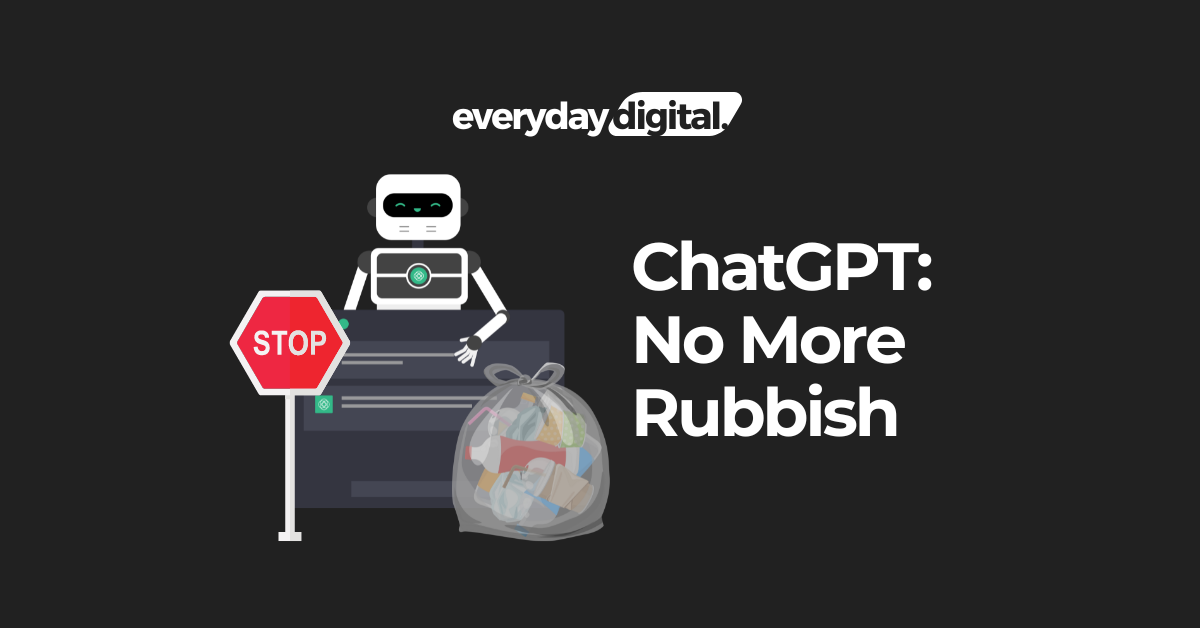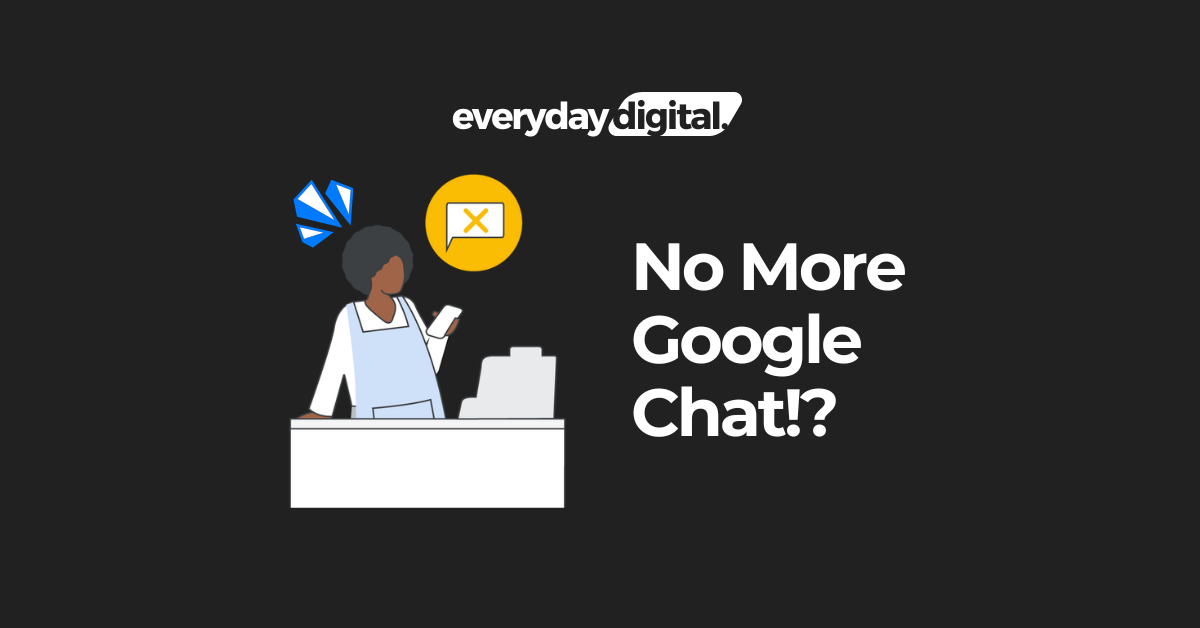Do you have a website that looks fantastic but doesn’t seem to attract many visitors?
Do you even know if your website gets ANY visitors?
You’re not alone.
Many business owners invest in creating a visually impressive site, only to discover that appearance isn’t everything when it comes to generating sales.
The missing piece of the puzzle is often Search Engine Optimisation (SEO).
Why Great Design Alone Doesn’t Cut It
Think of your website like a luxury car in a closed garage. No matter how sleek and impressive it is, if it’s never driven or seen, no one will appreciate its value or design. This is the exact challenge websites face without proper SEO.
Search engines are the main roads where everyone drives, and SEO is what gets your site out of the garage and onto these roads. Without SEO, your beautifully designed website remains unseen amidst the billions of other sites. Effective SEO ensures that your site not only appears in search results but stands out, significantly boosting your chances of attracting potential customers. Without this visibility, even the most visually appealing website can go unnoticed, failing to draw in and convert visitors.
Unless, of course, you use other methods to drive traffic to your website, such as social media…. but still, building an organic stream of traffic in a high position on Google, where serious buyers are looking for your business, is where all business owners want to be.
Limitations of websites without SEO
While a well-designed website is crucial for creating a positive user experience, it’s not enough to ensure that potential customers will find your site.
Here’s how great design impacts user experience and why it may not suffice for improving discoverability:
User Experience vs. Visibility: Good design can make your website easy to navigate, visually appealing, and aligned with your brand’s identity, which enhances user satisfaction and retention once they find your site.
However, without SEO, the chances of them finding your website through search engines are significantly reduced. Design alone doesn’t signal to search engines that your site is a relevant result for users’ queries.
Impact on Discoverability: Search engines use complex algorithms to determine the relevance and ranking of websites. These algorithms primarily focus on textual content, user engagement metrics, and inbound links rather than design elements. Therefore, a website that is aesthetically pleasing but lacks optimised content and strategic SEO will likely be less visible in search results.
This is often the case with businesses that come to us. They have new or great looking websites, with such a lack of content that it’s putting them at a disadvantage.
Common Web Design Mistakes
Here’s a breakdown of typical SEO pitfalls in website design and advice on how to avoid them:
| Common SEO Mistake | Problem | Solution |
|---|---|---|
| Poor Mobile Optimisation | With mobile devices accounting for over half of web traffic globally, a website that isn’t optimised for mobile can suffer from reduced user engagement and lower search rankings. | Ensure your website design is responsive, adjusting smoothly to any screen size. Regularly test your site on various devices to guarantee a seamless user experience. |
| Slow Loading Times | Websites that load slowly can frustrate users and increase bounce rates, negatively impacting SEO. | Optimise image sizes, minify CSS and JavaScript, and leverage browser caching to improve load times. Consider using a content delivery network (CDN) to speed up content delivery to users around the world. |
| Overuse of JavaScript | Excessive reliance on JavaScript can lead to crawl issues, as search engines may struggle to index content rendered primarily by client-side JavaScript. | Use progressive enhancement techniques to ensure the core content and functionality of your website are accessible without JavaScript. Test your website with JavaScript disabled to see what content is naturally accessible. |
| Complex URL Structures | Overly complex or dynamic URLs can confuse search engines and users alike. | Use a simple, straightforward URL structure that includes relevant keywords and is easy for both users and search engines to understand. |
| Ignoring Header Tags | Skipping proper use of header tags (H1, H2, H3) can make it difficult for search engines to grasp the structure and content of your pages. | Utilise header tags to structure content effectively, making it easier for search engines to determine the relevance of your page to specific queries. |
| Missing Alt Text for Images | Images without alt text are missed opportunities for SEO, as search engines can't interpret images without textual descriptions. | Always include descriptive, keyword-rich alt text for images. This not only aids SEO but also improves accessibility. |
| Neglecting Meta Descriptions and Title Tags | Missing or poorly written title tags and meta descriptions can lead to lower click-through rates from search results. | Craft compelling and informative title tags and meta descriptions for each page, incorporating relevant keywords without stuffing. |
Can SEO really help small businesses?
SEO is a vital tool for local businesses aiming to increase their visibility online. It involves optimising your website so it appears more prominently in search results when potential customers search for related products or services in your area. This strategic process can be especially beneficial for local businesses with smaller budgets, allowing them to compete effectively against larger competitors.
Here’s how SEO can help local businesses shine at the top of Google search results:
Google Business Profile: Make the most of your Google Business Profile to significantly boost a local business’s visibility. This free tool allows businesses to manage their online presence across Google, including search and maps. By keeping their Google Business Profile updated with accurate information, posting regular updates, and collecting customer reviews, businesses can improve their local SEO rankings.
Local Backlinks: Earning backlinks from well-regarded local sources (like community websites, local news outlets, or partnerships with other local businesses) can enhance a business’s local search rankings. Google view citations as endorsements, boosting credibility and relevance.
Mobile Optimisation: As local searches often happen on the go, ensuring that your website is mobile-friendly is crucial. A mobile-optimised site offers a better user experience, which not only keeps visitors on your site longer but also aids in higher search engine rankings.
Content Relevance: Creating content that addresses local issues or interests can help establish your business as a community authority. Blog posts about local events, news, or activities provide value to your local audience and improve your site’s relevance and authority in local search results.
Local Keywords: By targeting location-specific keywords, such as “best coffee shop in Birmingham” or “Manchester plumbing services,” local businesses can attract more relevant traffic. This strategy helps to capture the attention of users who are actively searching for services or products in their vicinity.
Summary
We’ve discussed the critical need for integrating SEO with website design to ensure your site isn’t just beautiful, but also visible and effective. To truly leverage your website’s potential, consider reviewing your current SEO strategy. If needed, seek professional help to enhance your online presence and ensure your site reaches its intended audience.
Consider a consultation or an SEO audit to improve your website’s performance and visibility.
Don’t let a great design go unseen— let Everyday Digital see if we can help maximise your site’s potential.
SEO My Website
Contact us today to see how we can help.






